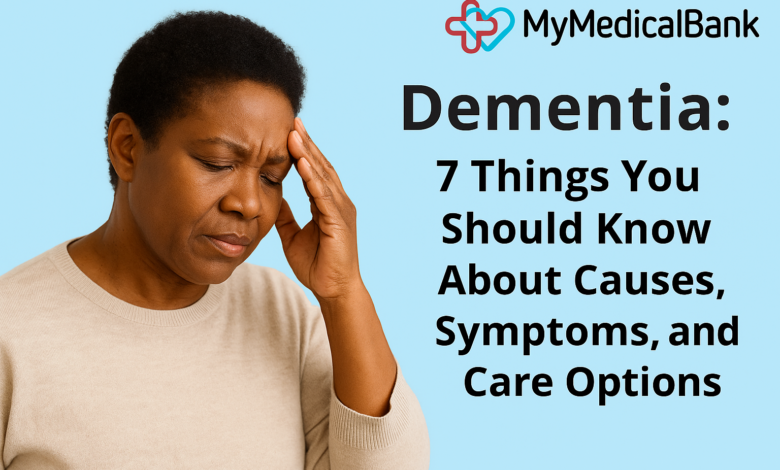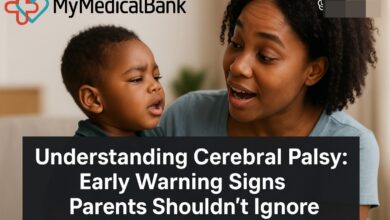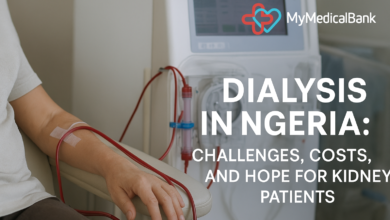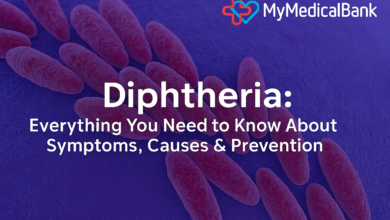7 Things You Should Know About Dementia: Causes, Symptoms, and Care Options

Dementia is a condition that results in the decline of brain function, usually linked to certain diseases. It impacts key abilities such as memory, reasoning, communication, decision-making, and behavior. In medical terms, dementia is also known as a major neurocognitive disorder.
It’s normal to forget things once in a while as we get older, but dementia is different. Dementia isn’t just about aging—it’s a serious condition where someone loses important brain functions like memory, learning, reasoning, and even behavior. While memory loss is often the first thing people think of, it’s not the only sign. A person with dementia might struggle with language, have trouble recognizing things they see, find it hard to stay focused, or even go through noticeable personality changes that affect their everyday life.
Normal Aging vs. Dementia: Knowing the Difference
In the early stages, it can be tricky to tell the difference between normal aging and dementia. Both may show up as forgetfulness or changes in behavior, but the duration and intensity of the symptoms are what set them apart.
For example, age-related forgetfulness often looks like forgetting a name or appointment and then remembering it later. In contrast, early dementia usually involves more serious and persistent memory loss, where a person needs frequent reminders or even assistance with daily tasks.
Normal aging might make it harder to manage complex responsibilities, like handling finances, but with dementia, the confusion becomes more disruptive. Someone with dementia might get lost in familiar places or struggle with daily routines that once felt easy.
Communication is another key difference. While aging might slow down conversations, dementia can cause repeated speech, difficulty following discussions, or challenges in expressing thoughts clearly.
Mood changes also play a part in the story. Aging can bring depression, anxiety, or occasional mood swings, but dementia often worsens these conditions and can interfere with everyday life and social relationships.
Causes of Dementia
Dementia happens when different diseases damage brain cells. Once these cells are harmed, they struggle to communicate with each other the way they should. When that communication breaks down, it affects how a person thinks, behaves, and even how they feel. That’s why dementia doesn’t just impact memory; it can change mood, decision-making, and daily life in very real ways.
What Causes Different Types of Dementia?
Dementia isn’t one single disease, it’s an umbrella term for conditions that affect memory, thinking, and behavior. The most common types of dementia include Alzheimer’s disease, vascular dementia, Lewy body dementia, and frontotemporal dementia. Each type has its own causes and risk factors. Here’s a breakdown:
1. Causes of Alzheimer’s Disease
Alzheimer’s is the leading cause of dementia. It happens when brain cells stop working and die, often linked to abnormal protein buildups (amyloid plaques and tau tangles).
Risk factors include:
- Age: Risk increases after 65, doubling about every 5 years.
- Family history: Having a parent or sibling with Alzheimer’s raises your chances.
- Genetics: Some rare genes directly cause Alzheimer’s, but they’re very uncommon.
- Head injury: Past injuries from accidents or sports can increase risk.
- Lifestyle: Poor diet, lack of exercise, and unhealthy habits raise risk.
- Health conditions: High blood pressure, diabetes, and heart disease are strongly linked.
2. Causes of Vascular Dementia
This type of dementia is caused by reduced blood flow to the brain, often after strokes or damaged blood vessels. Without oxygen and nutrients, brain cells die.
Risk factors include:
- Age: Rare before 65, but risk rises sharply in older adults.
- History of stroke or heart attack: Previous cardiovascular events raise the likelihood.
- Atherosclerosis: Artery plaque buildup restricts blood flow.
- High cholesterol, high blood pressure, diabetes, smoking, obesity All damage blood vessels.
- Atrial fibrillation: This heart condition can cause clots that travel to the brain.
3. Causes of Lewy Body Dementia
This form develops when abnormal protein clumps (Lewy bodies) build up in the brain, disrupting communication between brain cells.
Risk factors include:
- Age: Most common after 60.
- Sex: Men are slightly more at risk than women.
- Family history: Relatives with Lewy body dementia or Parkinson’s disease increase risk.
- Other conditions: Parkinson’s disease or REM sleep behavior disorder may trigger it.
4. Causes of Frontotemporal Dementia (FTD)
FTD occurs when neurons in the brain’s frontal and temporal lobes die off, affecting personality, language, and behavior.
Risk factors include:
- Family history: Genetics plays the biggest role in FTD.
- Age of onset: It usually affects people between 45 and 64, much younger than other dementia types
Early Symptoms of Dementia You Shouldn’t Ignore
Dementia doesn’t just appear overnight. It usually develops slowly, and in many cases, early warning signs show up long before an official diagnosis. Recognizing these symptoms early is important because it helps families seek medical support sooner and manage the condition better.
Some of the common early symptoms of dementia include:
- Memory loss – forgetting recent events or repeatedly asking the same questions.
- Difficulty concentrating – finding it hard to stay focused on tasks.
- Challenges with daily activities – for example, getting confused when handling money or shopping.
- Communication struggles – trouble keeping up with conversations or finding the right words.
- Disorientation – becoming confused about time, dates, or even familiar places.
- Mood and personality changes – noticeable shifts in mood, behavior, or how someone interacts with others
Diagnosis of Dementia
Unlike some conditions that can be identified with a single test, diagnosing dementia is more complex. There isn’t one specific test that can confirm dementia on its own. Instead, doctors look at a combination of factors to reach a diagnosis.
The process often includes:
- Medical history – reviewing past and present health conditions.
- Physical examination – checking overall health and neurological responses.
- Laboratory tests – ruling out other possible causes of symptoms.
- Observation of cognitive and behavioral changes – tracking issues with memory, thinking, daily activities, and personality.
Doctors can usually say with confidence if a person has dementia, but figuring out the exact type (such as Alzheimer’s, vascular dementia, or Lewy body dementia) can be tricky. This is because the symptoms and brain changes often overlap. In some cases, a doctor may simply diagnose “dementia” without specifying the exact type, especially in the early stages.
How MyMedicalBank Can Support Dementia Care
Caring for someone with dementia can feel overwhelming both for patients and their families. Between frequent hospital visits, managing medical records, and finding reliable caregivers, the journey can quickly become stressful. This is where MyMedicalBank steps in to make life easier and provide meaningful support.
Here’s how MyMedicalBank can help:
1. Telemedicine Services
Families can connect with doctors, neurologists, and mental health professionals from the comfort of home. With dementia, regular check-ins are crucial, and telemedicine makes it possible to get expert advice without the stress of constant hospital visits.
2. Personal Health Record (PHR)
Keeping track of medical records, prescriptions, and test results can be a major challenge. With MyMedicalBank’s PHR, all important health information is securely stored in one place. This means doctors and caregivers have quick access to up-to-date records, ensuring better and faster care.
3. Home Care Services
Many dementia patients need daily assistance, and families may not always be available to provide it. MyMedicalBank connects you with trained caregivers, nurses, and health aides who can support your loved one at home. This helps patients stay comfortable in a familiar environment while still getting professional care.
4. Access to Medical Equipment
From monitoring devices to mobility aids, certain tools can make caring for individuals with dementia much easier. Through MyMedicalBank, families can access or purchase essential medical equipment, making home care more effective and less stressful.
5. Support for Caregivers
Dementia doesn’t only affect the patient. It also impacts family members and caregivers. MyMedicalBank provides caregivers with resources, guidance, and professional connections to reduce burnout and ensure they are not facing the journey alone.
Reduce Your Risk of Dementia: What You Can Do Today
When we talk about dementia, it’s easy to think it’s something that just “happens” when people get older. But that’s not the full story. Research shows that our lifestyle choices—especially the habits we build in mid-life (between ages 40–65) can affect our chances of developing dementia later on.
While no single action can guarantee prevention, there are practical steps you can take to lower your risk. Think of it as investing in your brain’s future health.
1. Stay Physically Active
Exercise isn’t just about looking fit—it’s one of the strongest ways to protect your brain. Regular movement keeps your heart and blood circulation healthy, helps manage your weight, and boosts your mental wellbeing.
There are two main types of activities you should aim for:
- Aerobic exercise (like walking, running, swimming) → good for your heart and lungs.
- Strength-building exercise (like lifting weights or bodyweight training) → helps maintain muscle and bone strength. Mixing both types will give your body and brain the best protection.
2. Drink Less Alcohol
It’s fine to enjoy a drink once in a while, but overdoing it can hurt your brain in the long run. Too much alcohol exposes your brain to harmful chemicals, increasing the risk of dementia.
Here’s a safe guide: try to limit yourself to no more than 14 units per week (about one pint of beer or a small glass of wine per day). Drinking more than this regularly doesn’t just affect your liver. It puts your brain and other organs at serious risk.
3. Don’t Smoke
If you smoke, you’re not only damaging your lungs but also increasing your chances of developing dementia. Smoking harms blood circulation, especially in the brain, which makes it harder for your brain cells to stay healthy.
The good news? It’s never too late to quit. The earlier you stop, the more you protect your brain from long-term damage.
4. Stay Mentally and Socially Active
Your brain is like a muscle, the more you use it, the stronger it gets. Activities that challenge your mind, like reading, puzzles, or learning something new, can help protect against dementia.
But it’s not just about solo brain work. Staying socially connected is just as important. Isolation can increase the risk of dementia, while engaging in conversations, group activities, or community events can boost your mood and strengthen your brain’s resilience.
Depression has also been linked to dementia, so if you’re feeling persistently low, anxious, or withdrawn, don’t ignore it. Reach out for help—whether it’s through your doctor, a counselor, or mental health organizations.
Conclusion
Wondering how to put this into practice, MyMedicalBank can help. With access to telemedicine services, home care professionals, and personal health records, you and your loved ones can take charge of brain health and overall well-being in smarter, more convenient ways.
Dementia is more than just memory loss. it is a progressive condition that affects thinking, behavior, communication, and daily life in ways that go far beyond normal aging. While factors like age and genetics play a role, research shows that healthy lifestyle choices made in midlife can significantly reduce the risk. Staying physically active, limiting alcohol, quitting smoking, and engaging your mind and social life are powerful steps you can take today to protect your brain for the future.
Still, dementia can happen despite our best efforts, and when it does, patients and families often need ongoing medical care, emotional support, and professional guidance. This is where MyMedicalBank makes a difference. By offering telemedicine services, personal health record management, home care support, and access to medical equipment, MyMedicalBank helps families manage dementia with dignity and peace of mind.
Caring for a loved one with dementia is never easy, but you don’t have to walk the journey alone. With the right knowledge, healthier lifestyle choices, and support from platforms like MyMedicalBank, patients and families can face dementia with strength, resilience, and hope.



